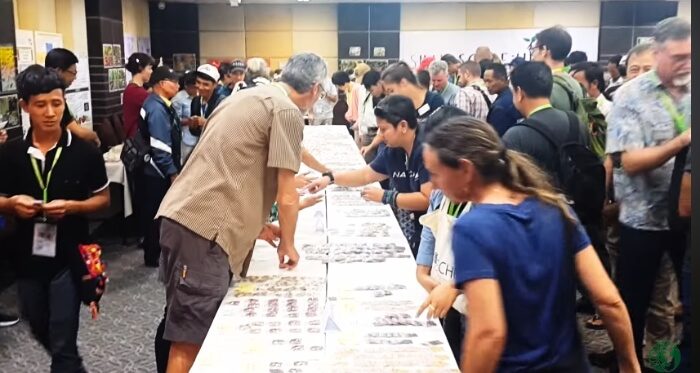The global ecosystem of farming is changing at an unusual rate, driven by technological advancements and ever-evolving challenges. Amidst this change, many ponder over a pressing question: Why Are International Conferences on Agriculture Important?
International conferences on agriculture are vital for knowledge exchange, collaboration, and innovation in farming practices, food security, and sustainability. They foster global cooperation to address pressing agricultural challenges.
In this exploration, we’ll dive into how these conferences shape agriculture and, in turn, our planet’s future. We’ll see how they boost farming, food security, and sustainability while bringing countries together to tackle shared challenges. Join us to understand their crucial role in a better world.
What Does the International Conference on Agriculture Exactly Provide?
Agricultural advancements shape the foundation of our global food supply and environmental sustainability. International conferences on this subject play a crucial role in enhancing these frameworks. They bridge the gap between research, implementation, and policy-making, uniting minds from diverse geographical and professional backgrounds.
The primary objective of the Agricultural Advancement Conference is to develop collaboration and knowledge exchange. Experts discuss innovative farming techniques, addressing challenges such as climate change, water scarcity, and food security. These conferences become melting pots of insights, guiding global strategies and initiatives in agriculture.
Moreover, they serve as a platform for showcasing ground-breaking technologies and research findings. Delegates derive actionable insights, forging partnerships that transcend borders. This global cooperative spirit ensures sustainable agricultural growth and future resilience.
Why Are International Conferences on Agriculture Important?
The agricultural sector has both extraordinary difficulties and opportunities in an environment that is changing quickly. One question that keeps coming up as everyone looks for answers is: Why are international conferences on agriculture important? These events are crucial in determining the path that the industry takes. Internation conference organizers put together these events for the sole purpose of developing the agricultural sector so that everyone related to this sector gets benefits.
Knowledge Exchange
International forums serve as hotbeds for sharing expertise and innovations. Delegates discuss their research findings, enriching the global agricultural knowledge pool. Such exchanges often spark groundbreaking collaborative projects.
Collaboration Across Borders
Diverse representation ensures a holistic view of challenges. Attendees from different countries bring unique perspectives and solutions. Together, they craft strategies that cater to varied regional needs.
Technological Advancements
Exposure to the latest farming technologies is a conference highlight. These platforms introduce tools and methods to optimize crop yields. Consequently, nations can harness tech to address food scarcity issues.
Addressing Global Challenges
From climate change to pest resistance, global issues require unified responses. Through dialogue and debate, these events chart out mitigation strategies. Collaborative efforts then drive sustainable solutions to these pressing matters.
Policy Formulation and Review
International discourse influences policy-making at the national level. By understanding global best practices, countries can refine their agricultural policies. This leads to improved governance and resource allocation.
Building a Sustainable Future
Agriculture’s future hinges on sustainable practices and innovations. Conferences spotlight these topics, guiding stakeholders towards eco-friendly solutions. Thus, they play a part in safeguarding our planet for future generations.
International agricultural conferences act as catalysts, propelling the industry towards a prosperous, sustainable future. They highlight the importance of collective action and shared knowledge in an interconnected world.
What Topics Take Center Stage in These Conferences Discussions on Agriculture?
Agriculture, as the lifeblood of many economies, witnesses rapid changes influenced by technology, environment, and policies. The International Conference on Agriculture becomes a crucible for pivotal discussions. Here are the core subjects that dominate these deliberations:
Innovative Farming Techniques
Modernizing Agriculture for Efficiency and Sustainability. The traditional hoe and plow evolve with time. New methods are continually being explored and shared to increase yields, decrease labor intensity, and ensure a greener future.
Tech’s Role in Agriculture
Digital transformation is reshaping agriculture. Delegates discover how drones, sensors, and AI are revolutionizing farming processes. These technological marvels promise efficiency, precision, and data-driven decision-making.
Tackling Climate-Induced Challenges
Agriculture faces the brunt of climate change. Experts highlight adaptive techniques and resilience-building strategies. Understanding and mitigating climate impact becomes a central discussion point.
Global Market Dynamics
Globalization has intricate effects on agriculture. Sessions dive into the shifts in global demand and supply chains. Armed with this knowledge, farmers can anticipate market needs and adjust accordingly.
Sustainability and Eco-Friendly Practices
Sustainability transitions from a buzzword to an imperative. Success stories of eco-conscious farming are showcased. These tales inspire and guide attendees toward greener agricultural practices.
Deep Dives into Crop Science
Beyond traditional methods, science plays a pivotal role. The latest research on crop genetics and pest resistance is highlighted. Such insights are invaluable in producing healthier, more bountiful yields.
Conclusively, the International Conference on Agriculture serves as a vibrant arena where the future of farming is both imagined and mapped. By focusing on these critical topics, it promises a more informed, resilient, and prosperous agricultural landscape.
Pros and Cons of Attending the International Conference on Agriculture
The International Conference on Agriculture is a hub for knowledge, innovation, and networking in the farming sector. However, like all events, it comes with its set of advantages and drawbacks. Here’s a balanced look at the pros and cons:
Pros:
- Research and Technological Exposure: Attendees gain firsthand knowledge of the latest agricultural research and tech breakthroughs, staying ahead of the curve.
- Global Networking: A unique chance to meet, interact, and collaborate with agricultural experts, policymakers, and innovators from diverse backgrounds.
- Diverse Farming Insights: Learn about successful farming practices from different parts of the world, offering fresh perspectives and approaches.
- Market Trend Analysis: Sessions provide valuable insights into global market trends, enabling farmers to better strategize and anticipate market shifts.
- Skill Enhancement Workshops: Hands-on sessions and workshops offer direct training, refining both new and existing agricultural skills.
- Platform for Showcasing Research: A golden opportunity for individuals to present their own findings and innovations to a global audience.
- Regulatory Clarity: Engage in discussions about agricultural policies, gaining a deeper understanding of the regulatory landscape and its implications.
Cons:
- Potential High Costs: Attending might strain finances, considering the sum of registration fees, travel expenses, and accommodation.
- Information Overload: With numerous sessions in quick succession, assimilating all the presented information can be challenging.
- Language and Cultural Barriers: Interactions might sometimes be hindered due to language differences or misunderstandings stemming from cultural nuances.
- Operational Setback: Being away might mean taking time off from one’s farm or business, which could impact daily operations.
- Crowded Networking: In such large gatherings, making meaningful connections can be daunting due to the sheer volume of attendees.
While the conference offers a treasure trove of opportunities, potential participants should evaluate the aforementioned factors to make an informed decision.
Tips for Making the Most of Your Time at an International Conference on Agriculture
Participating an International Conference on Agriculture can be both exciting and overwhelming. With myriad sessions and networking opportunities, maximizing the experience is crucial. Here are some tips to help attendees make the most of their time:
Plan Your Schedule Strategically
Before heading to an international agriculture conference, check the agenda. Pick sessions that match your interests and goals. This ensures you don’t miss important talks and workshops, making the most of your time there.
Network Proactively
Conferences aren’t just about listening; they’re about connecting. Approach speakers or professionals whose work you admire. Engaging in meaningful conversations can lead to potential collaborations or insights.
Take Detailed Notes
With the barrage of information presented, thorough note-taking is essential. Document key points, interesting statistics, or innovative ideas. These notes will serve as valuable references once you’re back home.
Engage in Workshops
Interactive sessions often offer the most direct learning experiences. Participate actively in hands-on workshops or group discussions. These platforms provide practical insights, often surpassing theoretical knowledge.
Utilize Digital Platforms
Many conferences have dedicated apps or online platforms. Leverage these tools for scheduling, connecting with other attendees, or accessing presentation materials. Digital resources can greatly enhance your conference experience.
Reflect and Debrief Daily
At the end of each day, take a moment to reflect. Review your notes, ponder over new ideas, and strategize for the next day. This daily ritual helps in assimilating information and planning ahead.
The International Conference on Agriculture is a goldmine of knowledge and opportunities, the onus is on the attendees to harness its full potential. By following these guidelines, participants can ensure a rewarding and enriching conference experience.
Conclusion
Agriculture is more than just farming; it’s the backbone of global sustainability and food security. As the world changes, the importance of staying updated and interconnected becomes evident. The pivotal role of International Conferences on Agriculture is evident in this context. They not only provide a platform for knowledge sharing but also fuel innovations and encourage global collaborations.
The pressing question is, why are International Conferences on Agriculture Important? finds its answer in these very gatherings. Through them, the global community comes together to craft strategies, address challenges, and foresee a future that’s resilient and inclusive. These events become a nexus of ideas, innovations, and aspirations, shaping the agricultural realm.
In conclusion, as we aim for a sustainable and prosperous agricultural future, these conferences stand as pillars of progress and hope. Their influence extends beyond discussions, laying the groundwork for collective global advancements in farming and its associated challenges.








